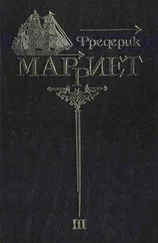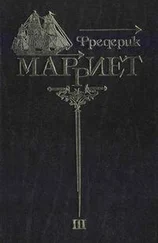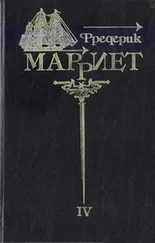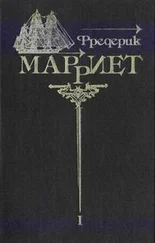Фредерик Марриет - Jacob Faithful
Здесь есть возможность читать онлайн «Фредерик Марриет - Jacob Faithful» — ознакомительный отрывок электронной книги совершенно бесплатно, а после прочтения отрывка купить полную версию. В некоторых случаях можно слушать аудио, скачать через торрент в формате fb2 и присутствует краткое содержание. Жанр: prose_military, literature_19, foreign_antique, foreign_prose, на английском языке. Описание произведения, (предисловие) а так же отзывы посетителей доступны на портале библиотеки ЛибКат.
- Название:Jacob Faithful
- Автор:
- Жанр:
- Год:неизвестен
- ISBN:нет данных
- Рейтинг книги:4 / 5. Голосов: 1
-
Избранное:Добавить в избранное
- Отзывы:
-
Ваша оценка:
- 80
- 1
- 2
- 3
- 4
- 5
Jacob Faithful: краткое содержание, описание и аннотация
Предлагаем к чтению аннотацию, описание, краткое содержание или предисловие (зависит от того, что написал сам автор книги «Jacob Faithful»). Если вы не нашли необходимую информацию о книге — напишите в комментариях, мы постараемся отыскать её.
Jacob Faithful — читать онлайн ознакомительный отрывок
Ниже представлен текст книги, разбитый по страницам. Система сохранения места последней прочитанной страницы, позволяет с удобством читать онлайн бесплатно книгу «Jacob Faithful», без необходимости каждый раз заново искать на чём Вы остановились. Поставьте закладку, и сможете в любой момент перейти на страницу, на которой закончили чтение.
Интервал:
Закладка:
“What’s all this?” cried Fleming, boldly. “Are you river pirates, come to plunder us?”
“Not exactly,” replied the officer; “but we are just come to overhaul you. Deliver up the key of your cabin,” continued he, after trying the door and finding it locked.
“With all my heart, if you prove yourselves authorised to search,” replied Fleming; “but you’ll find no smuggled spirits here, I can tell you. Marables, hand them the key; I see that they belong to the river guard.”
Marables, who had never spoken, handed the key to the officer, who, opening a dark lanthorn, went down into the cabin and proceeded in his search, leaving two of the men to take charge of Fleming and Marables. But his search was in vain; he could find nothing, and he came out on deck.
“Well,” said Fleming, sarcastically, “have you made a seizure?”
“Wait a little,” said the officer; “how many men have you in this barge?”
“You see them,” replied Fleming.
“Yes; but you have a boy; where is he?”
“We have no boy,” replied Fleming; “two men are quite enough for this craft.”
“Still I ask you, what has become of the boy? for a boy was on your decks this afternoon.”
“If there was one, I presume he has gone on shore again.”
“Answer me another question; which of you threw him overboard?”
At this query of the officer, Fleming started, while Marables cried out, “It was not I; I would have saved him. O that the boy were here to prove it!”
“I am here, Marables,” said I, coming on deck, “and I am witness that you tried to save me, until you were struck senseless by that ruffian, Fleming, who threw me overboard, that I might not give evidence as to the silver and gold which I found in the cabin; and which I overheard him tell you must be put into sacks and sunk, as two of the men had ’peached.”
Fleming, when he saw me, turned round, as if not to look at me. His face I could not see; but after remaining a few seconds in that position, he held out his hands in silence for the handcuffs, which the officer had already taken out of his pocket. Marables, on the contrary, sprang forward as soon as I had finished speaking, and caught me in his arms.
“My fine, honest boy! I thank God—I thank God! All that he has said is true, sir. You will find the goods sunk astern, and the buoy-rope to them fastened to the lower pintle of the rudder. Jacob, thank God, you are safe! I little thought to see you again. There, sir,” continued he to the officer, holding out his hands, “I deserve it all. I had not strength of mind enough to be honest.”
The handcuffs were put on Marables as well as on Fleming, and the officer, allowing me time to go down and put on my clothes, hauled up the sacks containing the valuables, and leaving two hands in charge of the barge, rowed ashore with us all in the boat. It was then about three o’clock in the morning, and I was very glad when we arrived at the receiving-house, and I was permitted to warm myself before the fire. As soon as I was comfortable, I laid down on the bench and fell fast asleep.
Chapter Eight
I did not awake the next morning till roused by the police, who brought us up before the magistrates. The crowd that followed appeared to make no distinction between the prisoners and the witness, and remarks not very complimentary, and to me very annoying, were liberally made. “He’s a young hand for such work,” cried one. “There’s gallows marked in his face,” observed another, to whom, when I turned round to look at him, I certainly could have returned the compliment. The station was not far from the magistrates’ office, and we soon arrived. The principal officer went into the inner room, and communicated with the magistrates before they came out and took their seats on the bench.
“Where is Jacob Faithful? My lad, do you know the nature of an oath?”
I answered in the affirmative; the oath was administered, and my evidence taken down. It was then read over to the prisoners, who were asked if they had anything to say in their defence. Fleming, who had sent for his lawyer, was advised to make no answer. Marables quietly replied, that all the boy had said was quite true.
“Recollect,” said the magistrate, “we cannot accept you as king’s evidence; that of the boy is considered sufficient.”
“I did not intend that you should,” replied Marables. “I only want to ease my conscience, not to try for my pardon.”
They were then committed for trial, and led away to prison. I could not help going up to Marables and shaking his hand, before he was led away. He lifted up his two arms, for he was still handcuffed, and wiped his eyes, saying, “Let this be a warning to you, Jacob—not that I think you need it; but still I once was honest as yourself—and look at me now.” And he cast his eyes down sorrowfully upon his fettered wrists. They quitted the room, Fleming giving me a look which was very significant of what my chance would be if ever I fell into his clutches.
“We must detain you, my lad,” observed one of the magistrates, “without you can procure a sufficient bail for your appearance as witness on the trial.”
I replied that I knew of no one except my master, Mr Drummond, and my schoolmaster; and had no means of letting them know of my situation.
The magistrate then directed the officer to go down by the first Brentford coach, acquaint Mr Drummond with what had passed, and that the lighter would remain in charge of the river police until he could send hands on board of her; and I was allowed to sit down on the bench behind the bar. It was not until past noon that Mr Drummond, accompanied by the Dominie, made his appearance. To save time, the magistrates gave them my deposition to read; they put in bail, and I was permitted to leave the court. We went down by the coach, but as they went inside and I was out, I had not many questions asked until my arrival at Mr Drummond’s house, when I gave them a detailed account of all that had happened.
“Proh! Deus!” exclaimed the Dominie, when I had finished my story. “What an escape! How narrowly, as Propertius hath it femininely, ‘ Eripitur nobis jumpridem carus puer .’ Well was it that thou hadst learnt to swim—verily thou must have struggled lustily. ‘Pugnat in adversas ire natator aquas ,’ yea, lustily for thy life, child. Now, God be praised!”
But Mr Drummond was anxious that the lighter should be brought back to the wharf; he therefore gave me my dinner, for I had eaten nothing that day, and then despatched me in a boat with two men, to bring her up the river. The next morning we arrived; and Mr Drummond, not having yet selected any other person to take her in charge, I was again some days on shore, dividing my time between the Dominie and Mr Drummond’s, where I was always kindly treated, not only by him, but also by his wife and his little daughter Sarah.
A master for the lighter was soon found; and as I passed a considerable time under his orders, I must describe him particularly. He had served the best part of his life on board a man-of-war, had been in many general and single actions, and, at the battle of Trafalgar, had wound up his servitude with the loss of both his legs and an out-pension from the Greenwich Hospital, which he preferred to being received upon the establishment, as he had a wife and child. Since that time he had worked on the river. He was very active, and broad-shouldered, and had probably, before he lost his legs, been a man of at least five feet eleven or six feet high; but as he found that he could keep his balance better upon short stumps than long ones, he had reduced his wooden legs to about eight inches in length, which, with his square body, gave him the appearance of a huge dwarf. He bore, and I will say most deservedly, an excellent character. His temper was always cheerful, and he was a little inclined to drink: but the principal feature in him was lightness of heart; he was always singing. His voice was very fine and powerful. When in the service he used to be summoned to sing to the captain and officers, and was the delight of the forecastle. His memory was retentive, and his stock of songs incredible, at the same time, he seldom or ever sang more than one or two stanzas of a song in the way of quotation, or if apt to what was going on, often altering the words to suit the occasion. He was accompanied by his son Tom, a lad of my own age, as merry as his father, and who had a good treble voice and a good deal of humour; he would often take the song up from his father, with words of his own putting in, with ready wit and good tune. We three composed the crew of the lighter; and, as there had already been considerable loss from demurrage, were embarked as soon as they arrived. The name of the father was Tom Beazeley, but he was always known on the river as “old Tom” or, as some more learned wag had christened him, “the Merman on two sticks .” As soon as we had put our traps on board, as old Tom called them, he received his orders, and we cast off from the wharf. The wind was favourable. Young Tom was as active as a monkey, and as full of tricks. His father took the helm, while we two, assisted by a dog of the small Newfoundland breed, which Tom had taught to take a rope in his teeth, and be of no small service to two boys in bowsing on a tackle, made sail upon the lighter, and away we went, while old Tom’s strain might be heard from either shore.
Читать дальшеИнтервал:
Закладка:
Похожие книги на «Jacob Faithful»
Представляем Вашему вниманию похожие книги на «Jacob Faithful» списком для выбора. Мы отобрали схожую по названию и смыслу литературу в надежде предоставить читателям больше вариантов отыскать новые, интересные, ещё непрочитанные произведения.
Обсуждение, отзывы о книге «Jacob Faithful» и просто собственные мнения читателей. Оставьте ваши комментарии, напишите, что Вы думаете о произведении, его смысле или главных героях. Укажите что конкретно понравилось, а что нет, и почему Вы так считаете.












